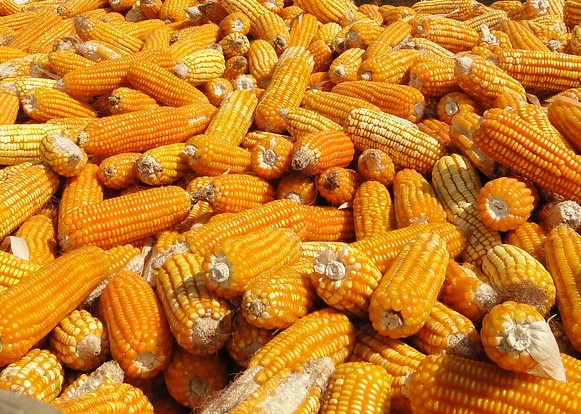MADRID – The war in Ukraine will inevitably increase the price of much of the food consumed daily in Spain. The prices of wheat, oil, and maize have been especially hard hit.
They are products that form the basis for the preparation of other foodstuffs or animal feed intended for human consumption. Sunflower oil will also become more expensive. This has already been reported by several agricultural and livestock organisations.
In practice, this means that consumers have to pay more for, for example, bread or a kilo of chicken. It will further dampen the purchasing power of consumers in Spain, which had already been reduced by inflation that stood at 6.5% at the end of last year. That was the highest level in nearly 30 years. Mainly caused by the increase in energy costs.
Ukraine as Europe’s breadbasket
The figures leave no room for doubt: Spain buys a significant amount of grains from Ukraine. It is not for nothing that the country is known as the breadbasket of Europe. Spain imports from Ukraine about 30% of its imports of maize and 60% of its imports of sunflowers, 17% of wheat, 31% of vegetable oil cake, and 15.4% of pulses.
According to data from the Institute of Foreign Trade (ICEX), the main Spanish imports from Ukraine in 2020 were cereals and sunflower oil. Specifically, 42.2% of all grains bought abroad by Spain came from Ukraine, and 25% of all sunflower oil.
Wheat 30% and maize 20% more expensive
The exact magnitude of the price increase is still unknown, but a recent report by the Dutch Rabobank estimates that wheat could become 30% more expensive and maize 20%. That is why Spanish farmers and ranchers have asked the European Union to draw up an emergency plan for agri-food and not to look the other way.
Account must be taken of the fact that the Spanish agri-food sector has been suffering from the effects of the conflict for several years now. Russia vetoed the access to the country of Spanish vegetables, fruit, and citrus fruits in 2014. This was a consequence of the sanctions that the EU and other countries imposed on Russia at the time of the annexation of Crimea.
Suffocated by “unprecedented production costs”
According to the Coordinator of Agricultural and Livestock Organizations (COAG), the war in Ukraine could worsen “the perfect storm” that the Spanish countryside is already suffering. New increases in the cost of raw materials are added to the effects of the drought in the country.
As an example, Jaume Bernis, cattle farmer at COAG, states that 70% of the production costs for pigs correspond to feed. “The water is not arriving, the crisis in Ukraine is starting, it is the perfect storm for the farmer’s margins, who are also already dealing with a significant increase in energy prices,” he says.
‘Another setback for Spanish agricultural and livestock farms’
The Agricultural Association of Young Farmers (ASAJA) regrets that international diplomacy has not been able to avoid a war. This represents “another setback for Spanish agricultural and livestock farms stifled by unprecedented production costs”.
“Our imports of grains and sunflowers, as well as basic inputs such as fertilizers, will suffer severely and imply another increase in production costs for the sector,” ASAJA states.
Maiz from Ukrania
The Union of Small Farmers and Ranchers (UPA) emphasises that Spain is the main destination for Ukrainian maize exports, an important grain product in animal feed. The maize mainly goes to the Spanish pig and poultry sector. “We need a plan to avoid a potential shortage and stop the escalation of feed prices,” said UPA.
The olive from Extremadura suffers from the export
The conflict will also affect some Spanish products exported to both Ukraine and Russia, such as olives. For example, 50% of the total export of Extremadura black olives goes to Russia and Ukraine.
From January to November 2021, the export of this product from Extremadura amounted to more than EUR 33 million. Of this export €10 million corresponds to the Russian market and €4.4 million to Ukraine. The province of Cáceres is the most affected, as it exports 78% of Extremadura olives.
Companies in the province are “already suffering from the consequences of the conflict”, assures the Chamber of Commerce of Cáceres. “Because in general land transport to Ukraine has already stopped”. This fact makes companies opt for other, longer routes through other countries which cause higher costs and delay in delivery times.
Added to this situation is the fall of the Russian ruble against the euro and the dollar. It also causes an increase in the price of products. In the short term, it can lead to fewer purchases and lower prices and It makes companies less competitive.
Wine
The Russian invasion already adversely affected also Spanish wine. There is a lot of demand for Spanish wine from Russia. In 2020, the country imported bottled wine from Spain worth €109.8 million. Spain is the third country behind Italy and Georgia to sell the most bottles of wine to Russia. Spain also occupies the third position in volumes sold (litres)


